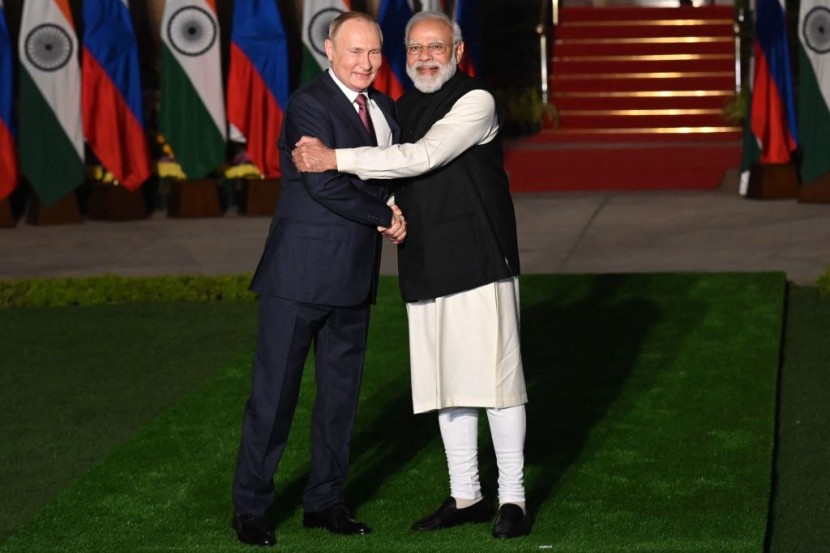
Moscow is integrating Indian RuPay as New Delhi accepted the Mir payment system in their banking system. After Russia was locked out of swift, this alternative to a western banking system was set up.
Russia, India Negotiates To Expand Use of National Currencies
The Russian Mir debit and credit cards could soon start to be approved at Indian ATMs and terminals, the Deccan Herald news outlet in India stated on Sunday.
Based on the report, the RuPay cards will soon be acknowledged after that. The Unified Payments Interface (UPI) of India and SPFS, the Russian equivalent of SWIFT, are reportedly now being addressed by the parties as possibilities for mutual integration, reported RT.
India and Russia are also making headway in their dialogues to boost the use of national currencies in trade agreements as well as to develop a new reserve currency for the BRICS.
Alexander Pankin, the deputy foreign minister of Russia, disclosed that Moscow and New Delhi are coordinating to allow Mir cards to be used for banking and other transactions.
The Moscow official claimed that it is critical to broadening the geographic reach of the Mir payment system due to the largest international card payment systems' unjustified blocking of all Russian customers. They are making strenuous efforts in this direction to add Indian RuPay.
He stated last week that discussions on the subject are ongoing with Egypt, China, Azerbaijan, Bahrain, Cuba, Myanmar, Nigeria, and Thailand.
So far, several nations, including Abkhazia, Armenia, Belarus, Vietnam, Kazakhstan, Kyrgyzstan, Tajikistan, Turkey, Uzbekistan, South Korea, and South Ossetia, use the Mir payment cards.
Russia Earns From Chinese Oil Imports
Aside from establishing its Mir payment system, Russia is getting brisk business as the supplier of the most oil that Beijing is buying up at a discounted oil, but the western nations facing an energy crisis could only dream of getting.
According to the most recent information provided by the Chinese customs service, Russia continued to be China's top crude oil supplier in July due to its appetite for energy.
The amount of Russian oil imported and used in July was 7.15 million tons, up 7.6% from the same month last year. These figures represent a decrease from nearly 2 million barrels per day in May to about 68 million barrels per day.
Russian energy shipments to China travel by sea and through the East Siberia Pacific Ocean pipeline. While Western consumers have avoided buying cargoes from the sanctioned nation to reduce its revenues, China has steadily increased its energy security from Russia.
However, efforts to exclude one of the biggest oil producers from international energy markets have driven up crude prices, forcing Russia to look to Asian buyers. As a result, China is now Russia's top oil customer.
Saudi Arabia, the second-largest oil supplier to China, transported 6.56 million tons, or 1.54 million BPD, in July, an increase from the previous month but still just a little below the July level.
Other oil suppliers, such as Angola and Brazil, have seen their supplies decline by 27% and 58% year over year, respectively, as a result of the preference for discounted Russian crude.
Moscow, in a tit-for-tat, set up Indian RuPay after New Delhi allows the Russian Mir payment system to be e accessible. It sets up the exchange of currencies that the BRICS countries want to do and is also helped by Chinese energy consumption.
Related Article: Xi Jinping Plans To Meet Vladimir Putin Ahead of Scheduled SCO Summit, G20 To Discuss Vital Issues








